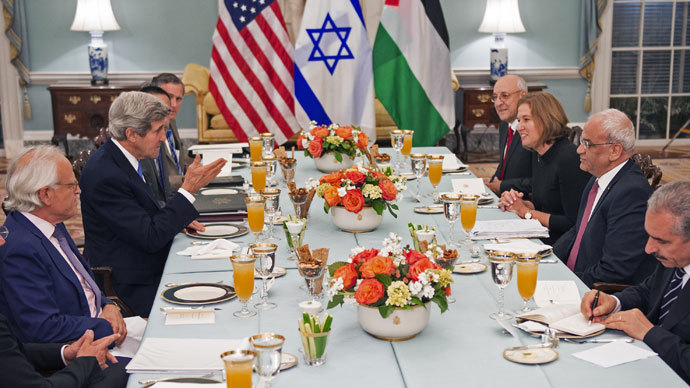
With Russia defying the international community in Ukraine and 150,000 dead in the Syrian carnage, Barack Obama doesn’t need the failure of the negotiations between Israel and Palestine. The Republican opposition claims that under his mandate the U.S. has lost its international leadership and only 40 percent of public opinion approves of his foreign policy, according to an AP poll. All of this is happening seven months before legislative elections in which Democrats could lose the Senate.
It matters so much to the White House to get an extension of those fruitless negotiations that Israel has taken the opportunity to blackmail Washington. In exchange for its promise to free 26 Palestinian prisoners, something that Palestine thinks indispensable before considering any extension, the Israeli government wants the U.S. to free an American spy who sold intelligence documents to Tel Aviv in 1986. As a gift, and only if the Palestinians accept all other conditions, it offers to free 400 Palestinians, the majority women, elderly persons and adolescents, who have not committed crimes of blood and who are close to finishing their sentences.
According to the Israeli press the U.S. has already accepted its part, and the only thing that remains to be done is for the Palestinians to approve theirs: to forego the recognition of their country for at least another year and a half, and accept that Israel continue building infrastructures in the occupied territories, although the country commits on paper to not building new settlements, a clause it violated even before signing it. Just yesterday the Israel Land Administration announced a new tender for the construction of 708 houses in the Gilo community, located beyond the 1967 “Green Line,” and therefore illegal under international law.
Despite it all, the intense efforts by Secretary of State John Kerry seem to have borne fruit, because after a long night of meetings and telephone calls the two interested parties discussed the extension of the dialogue until 2015, after the legislative elections in the U.S. scheduled for next November. The pawn with which Washington negotiates is called Jonathan Pollard, an old-fashioned spy who collected $10,000 and a diamond and sapphire ring for his fiancée in exchange for selling Israel information collected by his country on other world powers.

Leave a Reply
You must be logged in to post a comment.